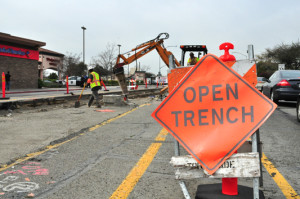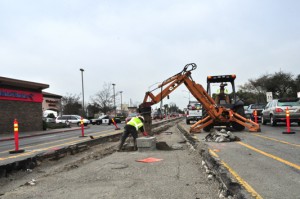
Ever since Governor Jerry Brown announced in January that cities around the state would soon be forced to return their surplus redevelopment funds back to Sacramento, city governments have been scrambling to find ways to keep the money. Hayward is no different.
Brown’s proposed 2011-2012 state budget calls for the dismantling of all 425 California redevelopment agencies, and will also require all revenue generated from local property taxes, which would previously have gone to city redevelopment, to be distributed among other county services. For the next year, excess funds that have already been appropriated to redevelopment will be returned directly to the state.
The Hayward City Council has been drafting up contingency plans for the last month as it waits in limbo for the budget to be officially adopted, supposedly sometime by March 10, a deadline Sacramento is not likely to meet.
Although Brown announced in his State of the State address on Jan. 31 that, “my budget protects all current redevelopment projects and supports all bonded indebtedness of those agencies,” city officials from all over the state have voiced their concerns over the prospect of works projects stopping before they are finished.
The worst-case scenario for Hayward would mean the incompletion of the Route 238 Corridor Improvement Project, which is responsible for the current road construction along Mission Boulevard.

More likely, projects still in the planning stages, such as the redevelopment of the area around the South Hayward BART, would be restructured or indefinitely shelved.
On Tuesday night, the Hayward City Council met to address this issue specifically. In light of Brown’s actions, the three development firms working in conjunction with the city have proposed a downscaled plan that would see the South Hayward Redevelopment Project “reduced from 788 residential units, including 341 ownership units and approximately 60,000 square feet of retail space, to 346 residential rental units (more fully described below) and no retail.”
The amended proposal was met with mixed responses, with Councilman Marvin Peixoto offering the sharpest critique.
“This is clearly not what the public and the planning committee envisioned,” said Peixoto. “We don’t want to waste this money and I don’t want that to be the driving motivation,” alluding to the pressures the council may feel to use redevelopment money before it is sequestered.
City Councilman Mark Salinas was also conflicted, asking, “Are we wasting money, and will we lose money if we give this the nod?”
“I struggle with this,” said Salinas. “While we would like to have what we intended to have, we’re in a very different economic climate.”
However, Salinas also added, “Being born in that area, that area has needed investment for a long time.”
Salinas knows all too well that the area around Dixon and Tennyson roads have been notoriously underdeveloped for years.
The biggest fear is that if redevelopment funds are suddenly cut, anywhere from $7.1 to $12.7 million may be rolled over to the City of Hayward’s general fund.
“There’s no way general fund money goes to a project like this,” retorted Councilman Bill Quirk, trying to assuage his colleague. “We’re not doing this because ‘if we’re not going to do this we’ll lose all the funding,’ we’re doing this because we think it’s the right thing to do.”
Council members Olden Henson and Francisco Zermeño also voiced their support.
“Let’s go ahead and get things going,” said Zermeño. “People will see activity and want to get things going.”
Like other cities, from Long Beach to San Carlos, Hayward is currently transferring many of its other general redevelopment funds into other government agencies in order to protect them from being repossessed by the state auditor. This includes the transfer of $1,477,344 from the Low-Mod Housing Fund Balance to the SR238 Project.
“Mayors from cities both large and small have come to the capital and pressed their case that redevelopment is different from child care, university funding, or grants to the aged, disabled, or the blind,” said Brown. “It’s a matter of hard choices, but I come down on the side of those who believe that core services should be funded first.”
Hayward Mayor Michael Sweeney reflected on the pain felt by the city.










